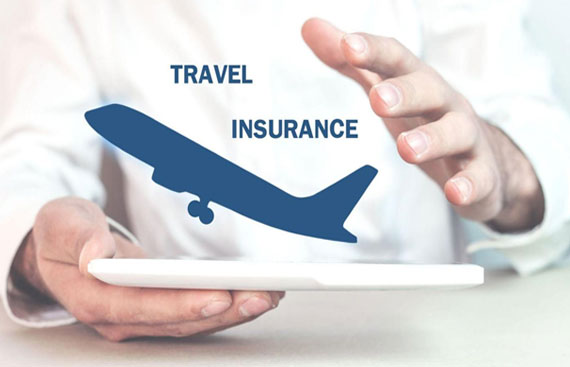Why Every Family Should Have Travel Insurance Before Their Trip

Travelling with children, parents, or grandparents is joyful, yet small hiccups can quickly drain energy and money. Sorting travel insurance for family early gives you a simple plan for the “what ifs” that sit at the back of your mind. Think of it as part of your packing list, alongside passports and chargers, not a last-minute add-on.
In this article, you will explore why family holiday insurance deserves a place on your checklist, especially for Indian travellers.
What Family Travel Insurance Really Means
A family plan combines parents and dependent children under one policy for a specific period. The idea is straightforward. One set of documents, shared limits, and one helpline to call if something goes wrong. It is not a shortcut or a promise that nothing will happen. It is a practical way to prepare for unexpected costs that may arise on the road.
Everyday Situations Where it Helps
Here are the everyday situations where it helps:
-
Illness Before Departure: A child develops a fever the night before a long-planned holiday. Rearranging flights and hotels can be stressful and costly. A policy that considers cancellation or curtailment can ease the impact.
-
Baggage Delay or Loss: A pushchair or a bag of medicines fails to appear on the belt. The benefits of delay can help you buy essentials until the items arrive.
-
Medical Care Abroad: A sprain on a city break or food poisoning during a tour can result in doctor visits, tests, and bills in a foreign currency. A plan with medical support and clear claim steps guides you through local care.
-
Passport Problems: A lost passport in a busy market turns the day upside down. Assistance for replacement documents and extra travel arrangements can be valuable when you are abroad with children.
Family Holiday Insurance or Individual Plans
Family holiday insurance provides a single umbrella of protection, which many households prefer for its simplicity. Individual plans may fit when ages, activities, or dates differ. For example, a teenager joining a scuba course might need a sports add-on that parents do not require. Review both options, compare their benefits and drawbacks, and then select the one that best matches your itinerary.
What to Check Before You Buy
Here you will explore what to check before you buy:
- Trip length, destination list, and the start and end dates
- Medical expense limits and any hospital cash benefits
- Baggage loss or delay limits, and how items are valued
- Passport and travel document assistance
- Personal liability where applicable
- Activity and sports cover if you plan treks, water sports, or snow trips
- Pre-existing condition rules and any optional upgrades
- Claim timelines, required documents, and helpline access from overseas
Exclusions You Should Read
Policies usually exclude routine check-ups, non-prescribed treatments, and events linked to unlawful acts. Incidents influenced by alcohol or drugs are commonly excluded. Many plans limit coverage for high-risk sports unless you add the correct option. Travelling against medical advice, or after a public warning that advises against travel to a region, may also fall outside coverage. Reading the wording carefully prevents surprises later.
How to Keep Costs Sensible
Here you will explore how to keep costs sensible:
-
Buy Early: Arrange cover soon after your first booking so pre-departure issues are considered within the policy terms.
-
Share The Right Details: Accurate dates, countries, and activities lead to better quotes and fewer disputes.
-
Choose the Right Type: A single-trip plan is suitable for a one-off tour. Frequent flyers may prefer a multi-trip plan for the year.
-
Set a Sensible Excess: A higher excess can lower the premium, but only choose it if you are comfortable paying that amount in the event of a claim.
-
Avoid Duplicates: Some cards or tickets include small benefits. Check overlaps and decide what you actually need.
Simple Claim Steps That Save Time
Here are the simple steps that save time:
- Keep e-tickets, boarding passes, invoices, medical notes, and police reports where relevant.
- Call the assistance number as soon as an issue arises and note the reference number.
- Follow the listed steps, submit forms within the time window, and keep copies in cloud storage.
- Photograph damaged items or receipts clearly so they are easy to read.
- Keep conversations polite and factual. It speeds things up for everyone.
India-Specific Pointers For Families
Here are the pointers for Indian families:
- Some visa centres require proof of coverage that matches the full duration of your stay. Check this before your appointment.
- Save international helpline numbers that work from abroad. Domestic toll-free numbers may not connect outside India.
- When travelling with grandparents, list regular medicines, dosages, and generic names. Carry copies of prescriptions in your hand baggage.
- If children are travelling with relatives, a brief consent letter with contact details can help avoid questions during immigration checks.
Quick Pre-Trip Checklist
Here is the quick checklist:
- Passports, visas, and any entry or health documents
- Policy certificate saved on phones and printed for the daypack
- Emergency contacts, assistance number, and local embassy details
- Backup payment method and a small medical kit with usual prescriptions
- Copies of bookings, including hotels and transfers
Final Thoughts
Holidays are about memory-making, not paperwork. Setting up the travel insurance for senior citizens or family turns confusion into a clear set of next steps when plans are uncertain. Family holiday insurance keeps documents tidy, brings support within reach, and lets you focus on the people you are travelling with. Read the wording, choose benefits that match your trip, and head out knowing you have prepared with care.
